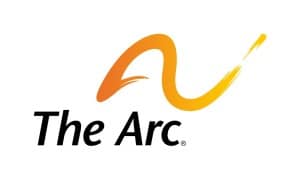By Annie Acosta, Director of Fiscal and Family Support Policy, The Arc
 The midterm elections are over and many wonder how they will impact the disability community in the 114th Congress. And with all of the 24/7 news coverage, it can be hard to know what really matters for people with intellectual and developmental disabilities (I/DD), their families, service providers, and advocates, including members of the Special Needs Alliance. Here is a quick synopsis to make it easier:
The midterm elections are over and many wonder how they will impact the disability community in the 114th Congress. And with all of the 24/7 news coverage, it can be hard to know what really matters for people with intellectual and developmental disabilities (I/DD), their families, service providers, and advocates, including members of the Special Needs Alliance. Here is a quick synopsis to make it easier:
- Republicans gained control of the Senate and further strengthened their majority in the House. However, they will need to work with Democrats to pass legislation which the President will sign for it to become law in the next two years.
- Party majorities are really important, mostly because they determine control of the congressional agenda and calendar and the committees where most of the work gets done.
- The three committees in the Senate that are most important to people with I/DD are the Appropriations Committee, the Finance Committee and the Health, Education, Labor & Pensions (HELP) Committee. The Appropriations Committee determines funding for federal agencies and most discretionary programs. The Finance Committee handles funding and program details for Social Security, Medicaid and other entitlement programs. The HELP Committee handles most federal programs related to health, education and employment.
- The four committees in the House that are most important to people with I/DD are the Appropriations Committee, Ways and Means Committee, Education and the Workforce Committee, and the Energy and Commerce Committee. The Appropriations Committee determines funding for federal agencies and most discretionary programs. The Ways and Means Committee handles funding and program details for Social Security, Medicare and other entitlement programs. The Education and the Workforce Committee handles most federal programs related to education and employment, and along with the Energy and Commerce Committee, has jurisdiction over health, including the program details of Medicaid.
- The committee chairpersons (from the majority party) determine a committee’s priorities based on their interests, sense of national needs and political judgment. “Ranking members” are the senior leadership of the committee from the minority party.
Every election provides an opportunity for organizations like The Arc and the Special Needs Alliance to make new friends in Congress. In the coming weeks and months, The Arc will be engaging our vast network in reaching out to their new members of Congress, as well as those who continue to represent them. There are new faces and new dynamics in Congress, but our work remains the same.
Disability is a bipartisan issue and The Arc is a non-partisan organization. Disability may affect all Americans at any point in life. Landmark disability legislation like the Americans with Disabilities Act (ADA) and the Individuals with Disabilities Education Act (IDEA) became law through the support of Republican and Democratic members of Congress alike.
But with retirements and election losses, the disability movement needs new champions in the halls of Congress. To cultivate these relationships, we need your help.
The Arc’s grassroots and chapters will work hard to get to know our elected officials and what they care and know about. We will let them know what we care and know about. Most importantly, we will let them know why we care. We will tell them about ourselves, our children, brothers, sisters, aunts, and uncles, neighbors and friends with I/DD.
We will let them know that we matter. We will do this by paying attention to what they do and letting them know how we feel about it. We will also do this by serving as a resource for them. If they try to do something that helps our community, we will thank them. Relationships matter.
The 114th Congress begins in the New Year. We will need action at every level of The Arc and with like-minded organizations like the Special Needs Alliance to ensure that members and staff are fully aware of the issues that are important to people with I/DD.
To get involved with The Arc as we cultivate new champions in Congress, and to stay in touch with The Arc for advocacy information, sign up for our action e-list.
The Arc promotes and protects the human rights of people with intellectual and developmental disabilities and actively supports their full inclusion and participation in the community throughout their lifetimes. SNA is partnering with The Arc to collaborate on providing educational resources, building public awareness and advocating for policies on behalf of people with intellectual/developmental disabilities and their families.
About this Article: We hope you find this article informative, but it is not legal advice. You should consult your own attorney, who can review your specific situation and account for variations in state law and local practices. Laws and regulations are constantly changing, so the longer it has been since an article was written, the greater the likelihood that the article might be out of date. SNA members focus on this complex, evolving area of law. To locate a member in your state, visit Find an Attorney.
Requirements for Reproducing this Article: The above article may be reprinted only if it appears unmodified, including both the author description above the title and the “About this Article” paragraph immediately following the article, accompanied by the following statement: “Reprinted with permission of the Special Needs Alliance – www.specialneedsalliance.org
